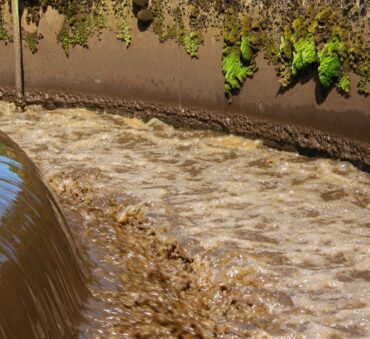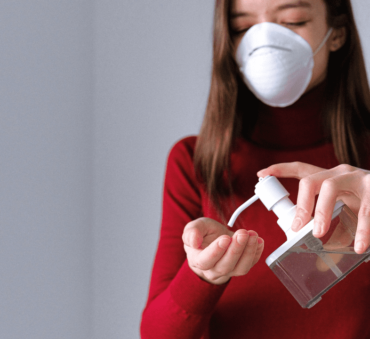Whether it’s being used to combat pests, kill weeds, or maintain an immaculate yard, garden chemicals and fertilizers are incredibly common in households and businesses. However, it is equally important to understand the significance these products have on the environment and your health, which is why we’ve created this guide on how to dispose of fertilizers and garden chemicals correctly.
Join us as we provide you with comprehensive information about how to dispose of old garden chemicals, the laws and regulations surrounding garden chemicals and their environmental, economic, and health impacts.
Key Takeaways
- Garden chemicals can consist of fertilizers, weed killers, and pesticides and can be detrimental to human health and the environment if not disposed of properly.
- Understanding the laws around responsible garden chemical disposal will help you ensure you are minimizing your negative impact.
- On top of environmental and personal health repercussions, garden chemicals can have legal and economic consequences too.
- Know what NOT to do and follow the right disposal method for your situation to protect the health of others and the ecosystems.
Commonly Used Chemicals in the Garden and the Yard
Garden chemicals are found in many different products that are used in—and out of—houses and businesses to help maintain gardens, plants, and yards.
By understanding the types of chemicals found in your products, you’ll know how to dispose of the fertilizers you use. Typically, they come in three forms: weed killers, pesticides, and fertilizers.
- Pesticides: Used to control or eliminate pests that damage plants or pose a health risk, pesticides come in many forms such as powders, baits, and sprays. While they can protect your garden and plants, their chemicals can harm you and the environment, which is why it’s important for you to understand how to dispose of pesticides correctly.
- Weed Killers: As the name suggests, weed killers (also known as herbicides) are used to either destroy or control unwanted weeds and come in many forms, such as sprays, liquids, or pellets/powders. While using herbicides might solve your problem, they can also be extremely detrimental to the environment if you don’t know how to dispose of weed killers properly.
- Fertilizers: Fertilizers provide plants with the important nutrients they need to grow and survive and come in a variety of forms, such as granules, powders, and liquids. Although they can be beneficial for plants and plant health, if you don’t know what to do with old fertilizer or how to dispose of old fertilizer, it can lead to water contamination among other negative environmental impacts.
Laws Governing the Disposal of these Chemicals
Because of their threat to human health and the environment, laws and regulations have been put in place to govern the proper disposal of garden chemicals to ensure they are handled and thrown away correctly. Familiarizing yourself with these laws is essential to ensure you responsibly throw away garden chemical products.
- Federal Insecticide, Fungicide, and Rodenticide Act (FIFRA): Under FIFRA, products that contain pesticides—insecticides, fungicides, and rodenticides—must be labelled with instructions on how to dispose of them adequately. It is actually illegal to throw away these types of products in a way that doesn’t align with the instructions described on the label. This ensures that products containing pesticides are discarded correctly and that risks are minimized.
- Resource Conservation and Recovery Act (RCRA): The RCRA establishes regulations for the management and disposal of hazardous waste, including garden chemicals classified as hazardous waste. If a garden chemical is considered hazardous, it must be managed and disposed of according to the specified RCRA regulations. This ensures that hazardous garden chemicals are handled and disposed of safely to protect human health and the environment.
- Hazardous Materials Transportation Act (HMTA): If you need to move garden chemicals to throw away, you’ll need to comply with the HMTA regulations which govern the transportation of hazardous materials. This act is in place to ensure chemicals are handled properly and to prevent spills or accidents.
- Clean Water Act (CWA): The Clean Water Act is in place to prevent chemicals from polluting bodies of water and aims to maintain water quality. By following the CWA’s policies you’ll be doing your part to protect water sources from contamination.
- Comprehensive Environmental Response, Compensation, and Liability Act (CERCLA): Unfortunately, improper disposal happens, and garden chemicals contaminate the environment. If this happens, actions under the CERCLA might have to be enforced. The CERCLA delivers structure for responding to situations where hazardous substances have been—or are threatened to be—released. This act holds the parties responsible accountable.
Now that you have a deeper understanding of the laws and acts surrounding the responsible disposal of garden chemicals and fertilizers, you can do your part to help minimize their negative impact.
Why is it Important to Dispose of Garden Chemicals the Correct way?
Without the proper disposal of garden chemicals, human health and the environment are at risk. Not to mention, there are legal and economic consequences associated. By knowing why it’s important, you can practice safe disposal yourself and raise awareness by encouraging your neighbors, staff, and industry members to participate in harmless behaviors too.
- Environmental Impact: Serious environmental harm can occur if garden chemicals aren’t discarded safely, as they can leak into water or soil, contaminating ecosystems, and harming wildlife. Additionally, they can disrupt aquatic environments and can have long-term negative effects on the environment.
- Health Impact: If not disposed of safely, direct exposure to garden chemicals can pose serious health risks like skin irritation, respiratory problems, and potentially more severe issues. Indirect exposure can also be a risk and can happen through contaminated food or water sources, which increases the health risks for humans and animals.
- Legal Consequences: Legal repercussions can also occur if disposal regulations set by federal or state authorities are violated. Consequences can include fines, penalties, and even criminal charges. By following proper disposal methods, you can avoid any legal issues.
- Economic Consequences: Particularly for businesses, the economic consequences of improper disposal can be severe. Costly cleanups and a damaged business reputation are just a couple of examples of this. By disposing of chemicals correctly, you can protect your business’s image and bottom line.
How to Dispose of Garden Chemicals?
Now that you know a bit more about its importance, let’s take a closer look at the methods for liquid waste disposal and garden chemicals, their benefits, and what approach would be best for you.
- Donating to a neighbor or local small business: If you have garden products that you have no use for anymore, you could always ask a neighbor or a small business if they could use them. Donating garden chemicals that are still in good condition allows others to benefit and reduces the amount of waste.
- Look for local hazardous waste disposal events: Sometimes, communities will organize events where residents can safely dispose of household hazardous waste, including garden chemicals. If there aren’t any in your area, you could always work with a local collection site to organize one.
- Follow the directions on the packaging: In some cases, the packaging may give you the instructions you need to throw away your products safely. It is essential to read and follow these instructions carefully. If the packaging indicates that the chemical can be safely disposed of through regular trash or sewage systems, please make sure that it meets local regulations before proceeding.
- Seek professional disposal services: Professional disposal companies that specialize in chemical waste disposal can provide services to help you ensure your products are taken care of safely and in compliance with all regulations. If you are a business that uses larger amounts of garden chemicals, hiring professionals to help is a great option.
At Shapiro, we specialize in providing sustainable solutions for the safe handling and disposal of hazardous materials—including garden chemicals. With a focus on environmental stewardship, we will ensure that your waste is managed responsibly to minimize its impact.
Our sustainable initiatives use advanced technologies, reducing the need for landfill disposal. By partnering with us, you can rely on our expertise to handle your garden chemicals properly.
When you choose the right disposal method for your situation and follow the necessary safety measures, you’re doing your part to protect the health of others and the environment.

What NOT to do
While it’s extremely necessary to know how to dispose of yard chemicals, it is just as important to understand what not to do when getting rid of garden chemicals.
Here are some disposal methods to avoid contamination and health risks:
- Pouring chemicals down the drain: Do not pour hazardous liquid waste down the drain as this can contaminate water sources and harm aquatic life.
- Disposing of chemicals in regular trash: Do not throw old or unused garden chemicals in the trash. Most waste management collection agencies are not able to handle hazardous materials. Chemicals in the trash can harm sanitation workers and the environment.
- Burning chemical containers: Burning chemical containers can release toxic fumes into the air, endangering human health and contributing to air pollution.
- Pouring chemicals directly onto the ground: Try not to have garden chemicals pour directly onto the ground because they can contaminate nearby plants, the soil, and even water sources.
- Reusing containers for other purposes: Containers that once had garden chemicals in them should not be reused for any reason because the residue left over can pose cross-contamination risks.
- Storing chemicals indefinitely: Garden chemicals can degrade or become unstable over time and can be at risk for accidents or leakages. Do not store them for very long to avoid these issues.
- Mixing different chemicals together: Don’t mix garden chemicals together unless you’ve been instructed to do so. Mixing chemicals can be extremely dangerous because reactions could produce hazardous fumes or explosions.
By avoiding unsafe practices and responsibly disposing of garden chemicals, as outlined above, you help protect human health, preserve the environment, and ensure regulatory compliance.
Conclusion
Whether you choose to donate, utilize hazardous waste disposal events, seek professional disposal services, or follow the packaging instructions, by having a deeper understanding of how to dispose of old garden chemicals, and what not to do, you prioritize the environment and safe elimination practices.
To learn more about proper hazardous waste management, how you can contribute, and solutions, contact us today.
Frequently Asked Questions
Pesticides can be considered as toxic waste due to their potential harm to human health and the environment.
Pesticide toxicity varies depending on the chemical or product. Some can be very toxic, while others may have lower toxicity levels.
Yes, pesticides can harm the environment if not used or disposed of correctly. They can contaminate water, harm beneficial insects and wildlife, and disrupt ecological balance.
It depends on the chemicals found in the products. Some commonly used pesticides that are considered highly toxic include organophosphates, carbamates, and pyrethroids.
Empty pesticide containers should be rinsed thoroughly, and the instructions on the label should be followed. After you rinse out the container, they can usually be thrown out with the trash, unless otherwise stated on the packaging.
Pesticides can lose their effectiveness over time. Be sure to check the expiration date on the packaging and discard the pesticides appropriately.
Baily Ramsey, an accomplished marketing specialist, brings a unique blend of anthropological insight and marketing finesse to the digital landscape. Specializing in educational content creation, she creates content for various industries, with a particular interest in environmental initiatives.



